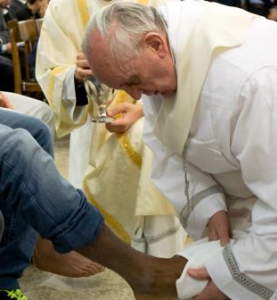
Figure via Topography of social touching depends on emotional bonds between humans
The areas outlined in blue are the “taboo zones,” which are regions that person group is not allowed to touch.
A recent study in PNAS (Proceedings of the National Academy of Sciences) caught my attention. It deals with reactions to being touched by others and examined reactions across a variety of cultures (Finland, France, Italy, Russia, and the United Kingdom). The researchers survey people from those countries using an “Internet-based topographical self-reporting tool”:
Touch is a powerful tool for communicating positive emotions. However, it has remained unknown to what extent social touch would maintain and establish social bonds. We asked a total of 1,368 people from five countries to reveal, using an Internet-based topographical self-reporting tool, those parts of their body that they would allow relatives, friends, and strangers to touch.
The fact that allowable areas of touch are related to group membership is no surprise. We would expect to see significant differences between partners and strangers in that regard. The study also asked about family members and distinguished between male and female subjects (respectively colored blue or red in the chart). Also expected was the study’s results in terms of what body areas are teemed “touchable”, which depended on the nature of the relationship:
Human social touch is particularly dependent on the emotional bond between the parties: The bodily regions where one may touch different individuals in their social network are relationship- specific, with hands and arms being routinely touched by even emotionally distant acquaintances, whereas touching the head, neck, and buttocks is typically restricted to emotionally closer relationships.
One of the findings I found less expected was the fact that cultural differences did not make as much of a difference as did gender:
The sex of the participant and the toucher significantly influenced the TIs [the touchable index]. When considering social network members having the same type of social relationship with the participant (e.g., sister vs. brother), females were allowed to touch wider body areas than males. The sex-related TI differences were significant for all male–female pairs of the social network (P < 0.05, t test). Accordingly, participants also reported stronger emotional bonds with female than male members of their social networks. Moreover, female subjects reported, on average, higher TIs across all members of their social network than males did, with the exception of female acquaintances and female strangers…Female, rather than opposite-sex, touch was, in general, evaluated as more pleasant, and it was consequently allowed on larger bodily areas.
Across the cultures, the most often used reason for touch was in greeting. In terms of cultural differences, some results surprised the researchers: “Somewhat surprisingly to the Finnish and Italian authors of the present study, Finland had larger TIs than Italy.” On the other hand, the culture least comfortable with touch may be easily predicted: the British. Unfortunately, the cultural variety was limited, so the results can hardly be generalized to include cultures from Asia, Africa or Latin American, where there may in fact be significant differences in terms of touch.














